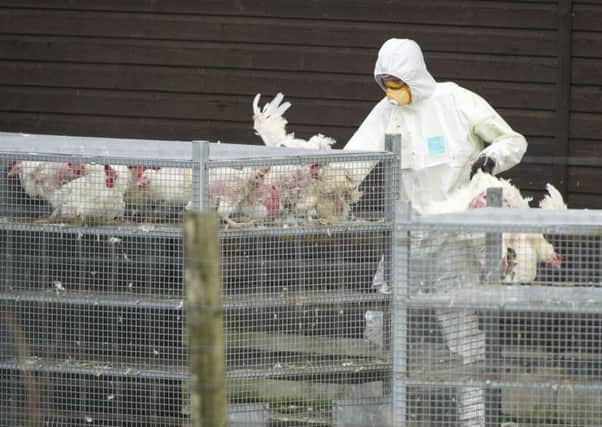Flu risk leads to order to keep all poultry indoors
This article contains affiliate links. We may earn a small commission on items purchased through this article, but that does not affect our editorial judgement.


Governments in Scotland and the rest of the UK have declared a prevention zone that legally requires owners to take all practicable steps to ensure that poultry and other captive birds are kept separate from wild birds.
A spokesman said that in most cases this meant keeping birds housed and added that the order would remain in place for the next 30 days.
Advertisement
Hide AdAdvertisement
Hide AdWhile veterinary and public health bodies moved to reassure consumers that there was little threat to humans, poultry keepers were advised to up their game – and if they could not keep their birds indoors, extremely strict biosecurity measures would be required.
The highly pathogenic H5N8 strain of avian influenza has been circulating widely in Europe and outbreaks have been recorded in both wild birds and commercial units in France and several other countries across Europe.
With no outbreaks in the UK, Scotland’s chief vet, Sheila Voas, said that the moves were being taken on a precautionary basis to help prevent potential infection from wild birds and added that consumers should not be concerned about eating eggs or poultry. She said that the risk of the disease affecting poultry in the UK remained “low, but heightened”, although for wild birds the risk had been raised to “medium”.
The authorities called for good biosecurity – for example disinfecting clothing and equipment, reducing poultry movement and minimising contact between poultry and wild birds.
Other measures suggested include:
• Reducing the movement of people, vehicles or equipment to and from areas where poultry are kept to minimise contamination from manure, slurry and other products and using effective vermin control.
• Thoroughly cleaning and disinfecting housing at the end of a production cycle.
• Keeping fresh disinfectant at the right concentration at all points where people should use it, such as farm entrances and before entering poultry housing or enclosures.
• Minimising direct and indirect contact between poultry and wild birds, including making sure all feed and water is not accessible to wild birds.
Advertisement
Hide AdAdvertisement
Hide AdThe move was welcomed by Mark Williams, of the industry’s poultry health and welfare group who said that most poultry units had contingency plans in place.
While a fair proportion of free-range turkeys are yet to be killed for the Christmas market, the “lock-in” order – which has been introduced on health and welfare grounds – is likely to trigger an exemption from the normal requirements for outdoor access, a spokesman confirmed yesterday.